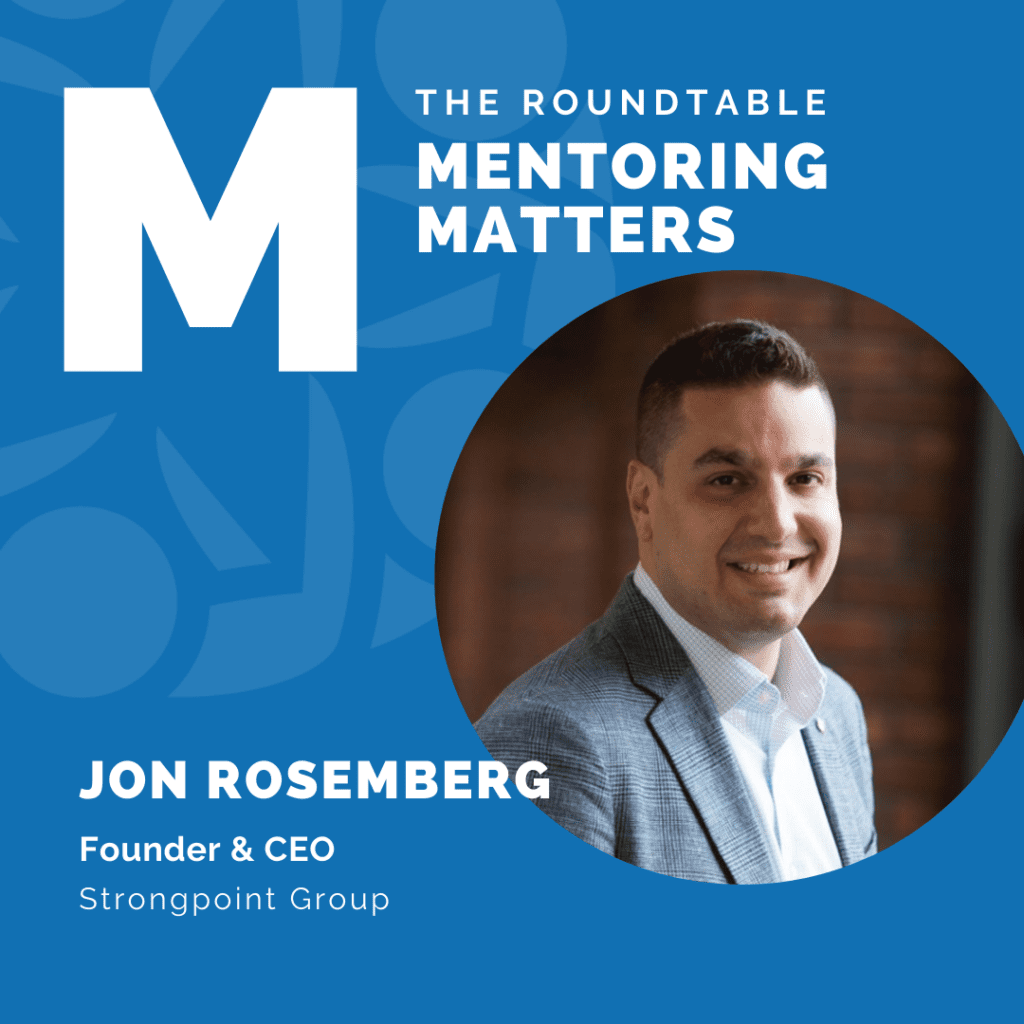Roundtable Member, Jon Rosemberg, Founder & CEO of the Strongpoint Group, shares strategies for building morale and team resilience in 2022 after a challenging 2021. You can also download the PDF here to read later.
Q: Last year was a challenging year for our organization. We’ve gone through a restructuring, and recently I’ve had to lay people off. Now that the holidays are over, what’s the best way that I can regroup my team in 2022 to build both morale and team resilience?
Jon’s Point of View
The Power of Change
One of the most emblematic teachings of Buddhism comes from the realization of life’s impermanence. Change is unavoidable. We have all experienced how our human existence and the things we hold onto are vulnerable to constant transformation. Adding complexity to this philosophical conundrum is the view of life’s inevitable changes as binary – our obsession with naming them as good or bad, easy or hard, fast or slow.
Dr. Fred Luskin, Director and Co-founder of Stanford’s Forgiveness Project, explains that the human brain has evolved to preserve life and, because of this, change can be perceived as a threat even if it does not endanger our safety. Transformation can be especially difficult and aversive when it comes from a challenging situation, like losing colleagues or job instability.
These long-dreaded challenges of the corporate world can prove so challenging for many that it can be difficult to see the silver lining. This is where the acknowledgement of grief and reconnecting with others can come in handy to build both team morale and resilience.
Embrace Grief
The range of human emotions is rich and while many of our feelings are pleasurable, others not so much. Grief, simply defined as deep sorrow, is a complicated emotion that comes to the surface when there is loss. This loss can be of a loved one, a partner in business or even the illusion of job security. Many, including me, try to avoid grief as it is commonly associated with sadness, confusion and anger, which are hard emotions to endure.
Paradoxically however, according to Dr. Luskin, loss needs to be grieved. For example, the pandemic came with a loss of our professional lifestyles as we once knew them, including the lack of physical interaction with coworkers and figuring out how to work from home. Most of us feel exhausted and are eager to leave the COVID emergency behind, alas this is not as simple as flipping a switch. Instead, Dr. Luskin proposes embracing grief by recognizing the impact of the difficult situation we are enduring. This, he says, will help our brains to reorient through times of change by allowing us to move forward while acknowledging the importance of what we have lost.
One of the measures team leaders should encourage during times of distress is social reconnection through informal, collaborative virtual or in-person gatherings that might not have a specific end-goal. Behavioural scientist Jon Levy illustrates this point through what is called “The IKEA Effect”, which defines the most trusted relationships based on the amount of effort we put into them, just like an IKEA piece of furniture that may not be too expensive but it can be perceived as more valuable as it requires dedicated selection and assembly.
Strengthening Resilience
Just as change is part of our unavoidable reality, so is human resilience. In fact, human nature is inherently gritty, as people are programmed with the survival ability to adapt through behavioural and emotional progression. Optimism is an excellent tool to boost resilience. That said, being positive can be specially challenging considering our human brains are so well tuned to detect danger, jump into fear and let our amygdala take over.
If we put effort into it, we can reframe our thoughts when facing major difficulties. Offering mindful opportunities, such as meditation classes and resting spaces, can also help team members by strengthening collective self-awareness, optimism and resilience, especially in times of transformation.




